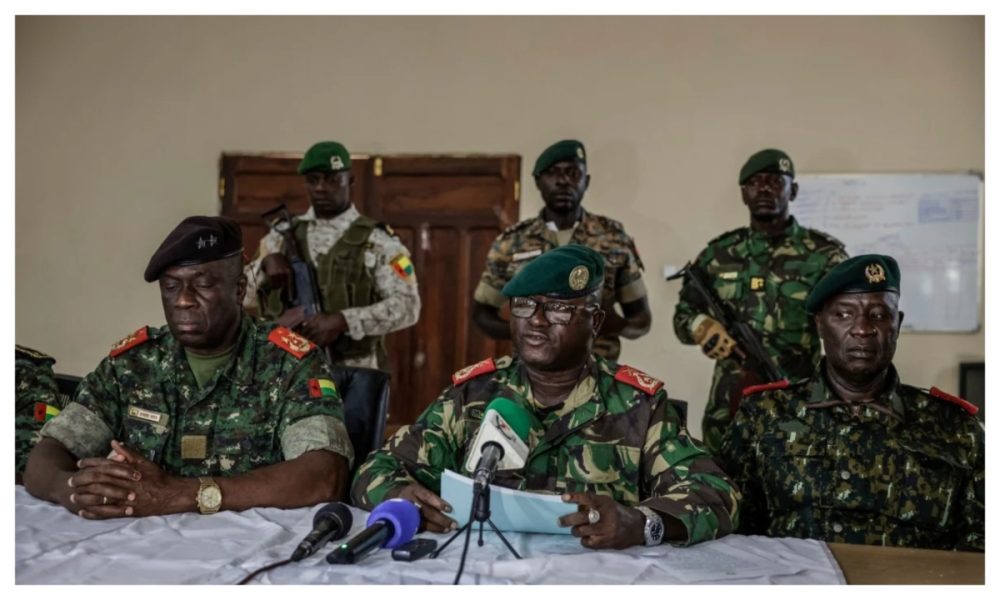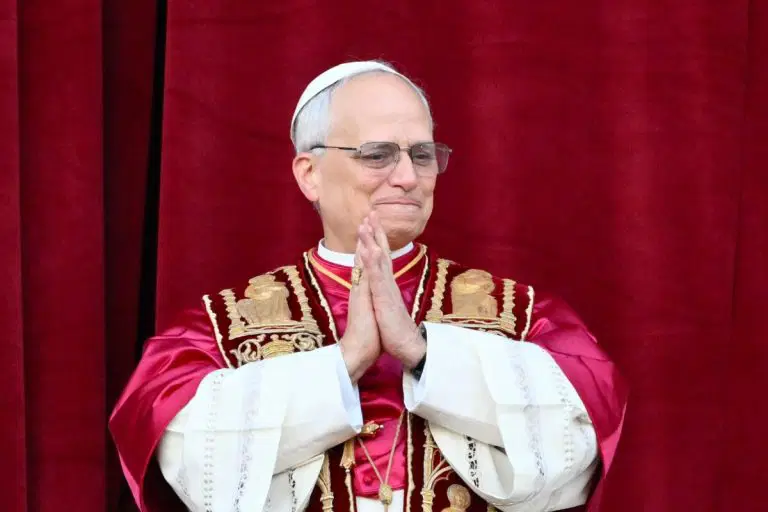Headline
See Five Countries That Have Landed On The Moon

Japan, whose unmanned “sniper” probe made a lunar touchdown on Saturday, is one of many countries and private companies launching new missions to the Moon.
The Smart Lander for Investigating Moon, SLIM, craft used precision technology to make a soft landing. However, officials said its solar cells were not generating power.
The touchdown makes Japan the fifth nation to land on the Moon. The other four are the United States, the Soviet Union, China and India.
Modern lunar exploration programmes include plans to put humans on the Moon for the first time since 1972. And, eventually, establish bases there.
Here is a rundown of the latest moonshots:
United States
The first country to land on the Moon wants to build a sustained presence there as a pitstop for missions to Mars.
But it has faced two setbacks this month, as NASA postponed plans for crewed lunar missions. A private lander had to turn back after leaking fuel.
READ ALSO: Police Begin Orderly Room Trial Of Personnel Who Invaded Abia TV Station
Under the US space agency’s Artemis programme, astronauts had been due to fly around the Moon this year. But the mission has been pushed back to 2025 to allow for extra safety checks.
A third Artemis voyage is now scheduled for 2026 instead of 2025. It would have put the first woman and first person of colour on lunar soil.
Even that may be optimistic. This is because the Artemis 3 lander, a modified version of SpaceX’s next-gen Starship rocket, has exploded in two test flights.
NASA says commercial tie-ups give it “more shots on goal” although its Peregrine lunar lander, made by US company Astrobotic, failed when it lost fuel after take-off.
The next attempt, by Texas-based Intuitive Machines, launches in February.
India
“India is on the Moon!” the country’s space agency chair announced to cheers at mission control in August. This was after Chandrayaan-3 became the first craft to land near the celestial body’s south pole.
The unmanned mission orbited Earth several times to build up speed for its journey. This resulted in a historic triumph for India’s ambitious, cut-price space programme.
READ ALSO: Ondo Guber: No Automatic Ticket For Aiyedatiwa – APC
In 2014, India became the first Asian nation to orbit a probe around Mars, and Chandrayaan-3 followed a successful launch into lunar orbit in 2008 and a failed Moon landing in 2019.
The Indian Space Research Organisation, ISRO, has a dozen missions planned for 2024, including preparation for a three-day trip into Earth’s orbit — its first crewed space flight.
Russia
The Luna-25 mission in August was meant to mark Russia’s return to independent lunar exploration. This was nearly half a century after the Soviet Union last landed on the Moon.
However, the lander crashed on the rocky lunar surface, where it was meant to collect samples and analyse soil for one year.
The failure dealt a blow to Moscow’s hopes of building on the legacy of the Soviet-era Luna missions, as financial troubles and corruption scandals plague its space programme.
President Vladimir Putin has also been working to strengthen space cooperation with China after ties with the West broke down following Russia’s 2022 invasion of Ukraine.
China
The world’s second-largest economy has pumped billions of dollars into its military-run space programme as China chases its “space dream” under President Xi Jinping.
READ ALSO: Govt Arrests Husband As Pregnant Wife Faints After Assault
A decade since the Chang’e-3 became the first Chinese spacecraft to land on the Moon, the country is now pursuing plans to send a crewed mission by 2030 and build a base there.
In 2019, the unmanned Chang’e-4 landed on the far side of the Moon. A year later, Chang’e-5 brought the first lunar samples back to Earth in more than 40 years.
In October, the country sent a fresh team to its Tiangong space station in the latest crewed mission for the fast-growing space programme.
Japan
Japanese company ispace attempted a lunar landing in April last year. But it crashed, becoming the third private entity to have failed in the endeavour.
Space agency JAXA has suffered a run of bad luck, losing communication with its Omotenashi lunar probe carried on Artemis 1 in 2022.
It has also seen failures after lift-off of the next-generation H3 launch rocket and the normally reliable solid-fuel Epsilon rocket.
So hopes have been high for the success of its SLIM craft, nicknamed the “Moon Sniper” for its pin-point landing technology.
The mission will be closely studied by other countries from South Korea to the United Arab Emirates. This is as they ramp up efforts to be the next to make lunar history.
Headline
Coup: Guinea-Bissau Junta Releases Six Held Opposition Politicians

Guinea-Bissau’s ruling junta on Tuesday released six members of the political opposition who had been detained since a coup last month.
The six freed opposition members are said to be close associates of Domingos Simoes Pereira, head of the PAIGC party that led the country to independence in 1974.
Pereira has been in custody since the coup.
In a statement by the High Military Command, the junta’s governing body, the releases are described as a sign of good faith and a step towards the return to constitutional normality and respect for international rights.
READ ALSO:Why West African Troops Overturned Benin’s Coup But Watched Others Pass
The army seized power on 26 November after ousting outgoing President Umaro Sissoco Embalo in the wake of a presidential vote.
After taking over, the military suspended the electoral process and announced it would take control of the West African country for a period of one year.
Recall that another opposition candidate, Fernando Dias, took refuge in Nigeria’s embassy, which granted him asylum, while Embalo fled the country after being briefly detained by the military at the time of the coup.
Meanwhile, Senegal’s Foreign Minister, Cheikh Niang, led a delegation to Guinea-Bissau, where he met with detained opponents and requested their release.
Headline
7 Territories Still Under Colonial Rule

Even though most nations became independent in the last century, some territories are still ruled by other nations.
Contents
1. Western Sahara
2. Guam
3. American Samoa
4. United States Virgin Islands
5. Falkland Islands / Malvinas
6. Gibraltar
7. Bermuda
Many of them remain on the United Nations list of non-self-governing territories, meaning they have not completed the process of decolonization. These places usually depend on bigger countries for laws, passports, defence, or political control.
In this article, Nigerian Tribune highlights 7 territories still under colonial rule:
READ ALSO:Nigeria Ranks World’s 102nd Happiest Nation, US, Germany Not Among 20 Top Counties
1. Western Sahara
Western Sahara remains one of the world’s biggest unresolved colonial issues. Morocco controls most of the territory, but the Polisario Front wants independence for the Sahrawi people. The UN is still trying to help both sides agree on a peaceful solution.
2. Guam
Guam is an important US territory in the Pacific, used heavily for American military operations. The US oversees its defence and foreign relations.
People living there are US citizens, but they cannot vote in presidential elections and do not have full representation in Congress.
READ ALSO:FULL LIST: US To Review Green Cards From 19 ‘Countries Of Concern’ After Washington Shooting
3. American Samoa
American Samoa has more local control than Guam, but the United States still decides immigration, defence, and foreign affairs.
Residents are considered US nationals and must apply if they want full citizenship.
4. United States Virgin Islands
The US Virgin Islands have their own legislature, but the United States makes major constitutional and political decisions. The territory depends heavily on US federal support.
5. Falkland Islands / Malvinas
The Falkland Islands remain controlled by the United Kingdom (UK), but Argentina has long disputed this claim, having been in control of the Islands for a few years before 1833.
The people living there voted strongly to stay British, yet the sovereignty dispute continues to appear in the UN.
READ ALSO:Six Countries With Highest Number Of Billionaires In 2025
6. Gibraltar
Gibraltar sits at the Southern tip of Spain. The United Kingdom controls it, but Spain insists the territory belongs to them.
Gibraltarians have repeatedly voted in favour of remaining British, but the dispute is still discussed within the UN Decolonisation Committee.
7. Bermuda
Bermuda is a British Overseas Territory situated in the North Atlantic Ocean. Although it manages most of its own internal affairs and enjoys a strong economy with modern facilities, the United Kingdom still handles its defence and represents it in global matters.
Headline
Russia-Ukraine War: Pope Leo Calls For Global Christmas Truce

Pope Leo XIV on Tuesday renewed his call for a global truce on Christmas Day, saying he felt “great sadness” after Russia “apparently rejected a request” for a pause in fighting.
Speaking to reporters at his residence in Castel Gandolfo near Rome, the Pope urged all sides involved in conflict to observe at least one day of peace.
“I am renewing my request to all people of goodwill to respect a day of peace — at least on the feast of the birth of our Saviour,” Leo said.
Recall that Russia invaded Ukraine in February 2022 and has repeatedly turned down calls for a ceasefire, arguing that any pause would give Ukraine a military advantage.
READ ALSO:Russian Strikes Kill Five In Ukraine, Cause Power Outages
“Among the things that cause me great sadness is the fact that Russia has apparently rejected a request for a truce,” the pope said.
Referring to conflicts worldwide, Leo added, “I hope they will listen and there will be 24 hours of peace in the whole world.”
The appeal came as fighting continued in eastern Ukraine. On Tuesday, Ukrainian forces withdrew from a town after heavy battles with Russian troops. Russian strikes killed three civilians and left thousands without power during winter temperatures.
READ ALSO:Trump Blasts Ukraine For ‘Zero Gratitude’ Amid Talks To Halt War
There was no indication of progress toward ending the war after separate meetings last weekend in Miami between the United States officials and negotiators from Russia and Ukraine. The conflict is nearing four years with no settlement in sight.
Earlier this month, Pope Leo met Ukrainian President Volodymyr Zelensky. When asked whether he would accept Zelensky’s invitation to visit Ukraine, the pope said, “I hope so,” while noting that it was not possible to say when such a visit could happen.
Leo also warned that efforts to secure peace without European diplomatic involvement were “unrealistic”, expressing optimism that President Donald Trump’s proposed peace plan could bring a “huge change” to the transatlantic alliance.

 News3 days ago
News3 days agoPHOTOS: New Era In Furupagha-Ebijaw As Okpururu 1 Receives Staff Of Office

 News2 days ago
News2 days agoUBTH CMD Marks 120 Days In Office, Expresses Commitment To Providing Conducive Working Environment

 News3 days ago
News3 days agoFG Declares Public Holidays For Christmas, New Year Celebrations

 News3 days ago
News3 days agoOPINION: Gumi And His Terrorists

 News2 days ago
News2 days agoFIRS Confirms NIN As Tax ID

 News2 days ago
News2 days agoOPINION: My Man Of The Season

 Metro2 days ago
Metro2 days agoFintiri Pardons Man Sentenced To Death For ‘Killing Herdsman In Self-defence’, Others

 News3 days ago
News3 days agoOPINION: Christmas And A Motherless Child

 News2 days ago
News2 days agoKWAM 1 Withdraws From Awujale Race, Ends Court Challenge

 News1 day ago
News1 day agoJUST IN: Kano Lawmaker, Sarki Aliyu Daneji, Dies Hours After Colleague’s Passing






























